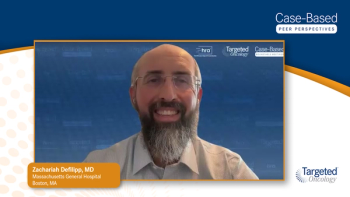
Phase 3 EMERALD: Efficacy of Elacestrant Across Subgroups
Panelists discuss how clinical trial data support the consistent efficacy of oral selective estrogen receptor degraders (SERDs) across diverse metastatic breast cancer subgroups—including patients with visceral disease, HER2-low tumors, or co-mutations such as PIK3CA—reinforcing the drug’s versatility and value as a treatment option beyond narrowly defined molecular profiles.
Episodes in this series

The discussion highlighted the importance of understanding treatment performance across patient subgroups in metastatic breast cancer, particularly for those receiving novel oral SERDs. One of the key observations from the clinical trial was the consistency of benefit seen with the agent, even in a heavily pretreated population. As clinicians gain more experience with the drug, questions have naturally emerged about its efficacy in various clinical and molecular subgroups—such as patients with visceral metastases, bone-only disease, or those harboring additional mutations such as PIK3CA or TP53.
Data from subgroup analyses have shown that the drug maintained a consistent advantage over standard endocrine therapies across multiple clinical scenarios. This includes patients with visceral involvement, a higher burden of disease, and both HER2-low and HER2-zero tumors. The benefit was not limited to any specific metastatic pattern or tumor burden, reinforcing the drug’s utility across a broad patient population. These findings are particularly meaningful for clinicians making individualized treatment decisions in a diverse group of metastatic patients.
Further, the presence of co-mutations—such as PIK3CA or TP53 alterations—did not appear to diminish the drug’s relative effectiveness. Even in tumors with these mutations, where alternative targeted therapies might be considered, the oral SERD outperformed standard endocrine monotherapy. This consistency of benefit suggests that while biomarker testing remains essential for guiding treatment, the agent’s utility is not limited to only narrowly defined molecular subsets. Overall, these insights provide reassurance that the drug can serve as a valuable and versatile option in the treatment of endocrine-resistant metastatic breast cancer.


















